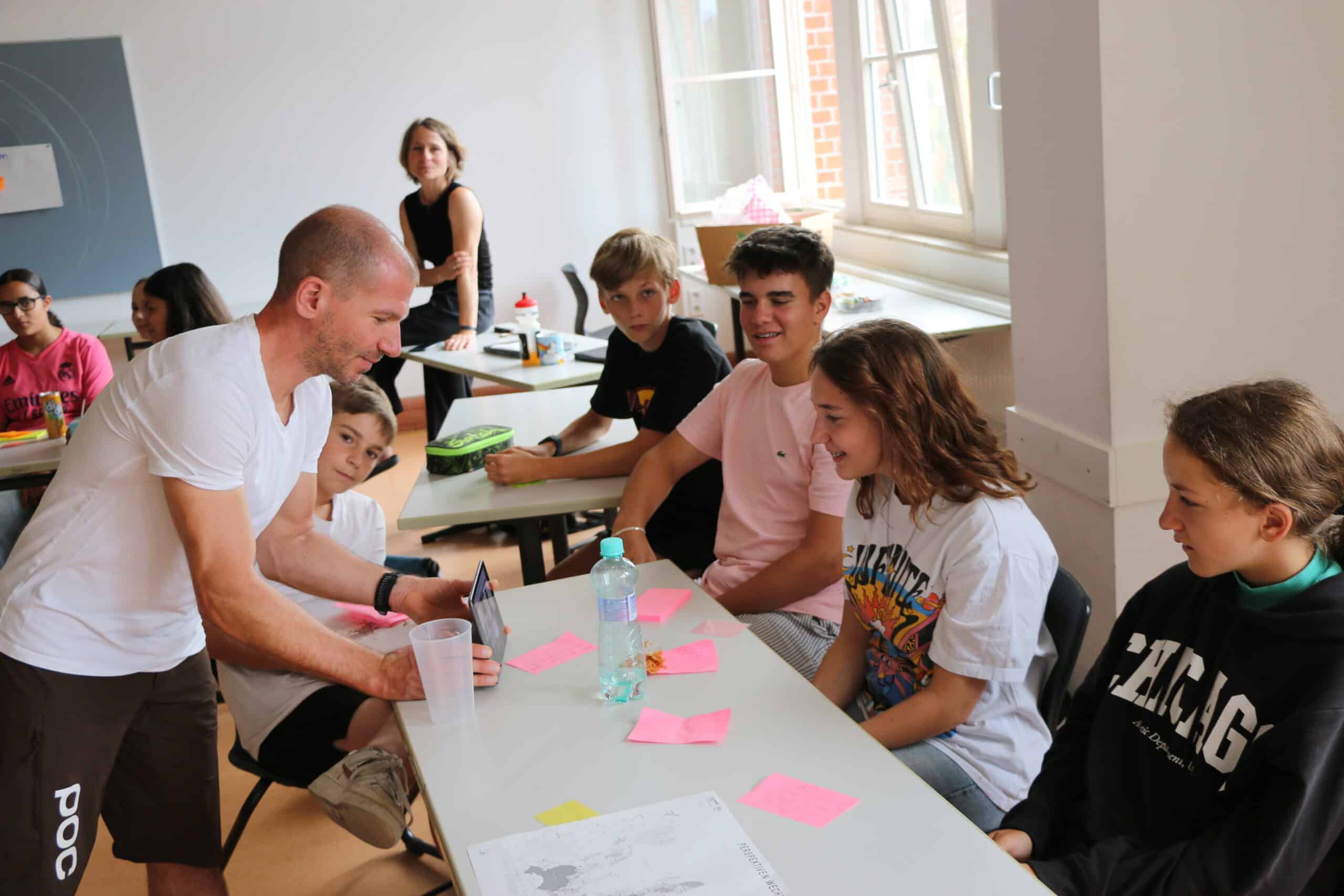‘Climate Stories’ is the name of Fairventures’ new climate education project. In Climate Stories, students in Germany connect with young individuals from the Global South through digital encounters. Our aim is to remove the abstraction from the climate crisis by providing a platform for the stories of the most affected people and their dedication. In their Climate Stories, they share their concerns, hopes and dreams and collaborate with German students to develop ideas for a more climate-just future.
You are currently viewing a placeholder content from YouTube. To access the actual content, click the button below. Please note that doing so will share data with third-party providers.
More InformationClimate Stories consists of two workshop units – one for content preparation on the topic of climate justice and the actual encounter. The first encounters took place in October and were well-received by the students. Furthermore, Climate Stories has an Instagram channel where videos from the so-called climate witnesses and background information on the topic of climate justice are shared.
The project is carried out with funding from the European Union, and through the support of the State Ministry of Baden-Württemberg, and the Baden-Württemberg Foundation for Development Cooperation (SEZ) as part of the “Mindchangers – Regions and Youth for Planet and People” program.
For more information about the project, please visit https://www.climate-stories.de/en

How did the project come about?
Fairventures is primarily known as a reforestation organization operating abroad. So, what prompted us to initiate a climate education project in Germany? Our decision is rooted in continuous dialogue with our colleagues in Uganda and Indonesia, through which three key aspects emerged, leading to the launch of Climate Stories:
1. The climate crisis is already a painful reality in countries of the Global South
In contrast to occasional extreme weather events in our regions, these events are prevalent in the countries we support, shaping the daily lives of the local population. In addition to floods, droughts, and storms, even the usually predictable rainy seasons have become unreliable.
2. Many young people in these countries passionately commit themselves to a better future
Despite having little responsibility for the climate crisis, they engage with enthusiasm. For instance, when we organize a tree-planting event in Uganda, we often have multiple buses filled with students who plant trees and strongly advocate for climate action. This is highly motivating for us.
3. Digitalization enables seamless communication with people from the Global South
Almost on a daily basis, we conduct meetings where team members from Germany, Uganda, and Indonesia collaborate online. Technological advancements, partly due to the COVID-19 pandemic, have significantly improved our possibilities to interact across boarders. Surprisingly, the internet connection during these meetings is often more stable in remote areas of Uganda than in Germany.

Winner of the Bad Boll Academy Award 2023
On October 10, we had the honor of receiving the Academy Award of the Protestant Academy Bad Boll, which comes with a prize of €2,500. Climate Stories emerged as the winner among a total of 24 submissions.
Tobias Weise, Chairman of the Academy’s Sponsoring Association, highlighted in his laudatory speech in front of over 100 attendees that the award’s question, “How do you inspire for more climate protection?” aimed to engage younger individuals. In his view, this is precisely what Climate Stories achieves: “The approach of not communicating climate change and its consequences with abstract figures but instead amplifying the voice of young people directly affected by it as well as enabling dialogue with local youth, has inspired us.”
Mathias Schweikert, Project Manager of Climate Stories, had the opportunity to present the project in person and emphasized the theme of climate justice and our global responsibility in his presentation. Mathias illustrated this with figures. For example, the per capita CO2 emissions in Germany are 77 times higher than in Uganda, where they stand at 0.14 tons compared to 10.8 tons in Germany. The poorest 50 percent of the global population are responsible for only ten percent of emissions, while the wealthiest ten percent are accountable for 50 percent.
Personal exchanges achieve what textbooks cannot. Listening to voices from the Global South is a crucial step toward a more climate-just future.
Check out the report on the award ceremony from the Evangelische Akademie Bad Boll or the Interview of Matthias Schweikert.
